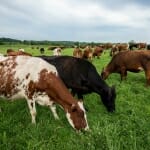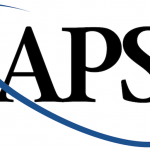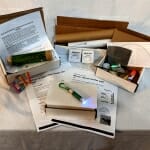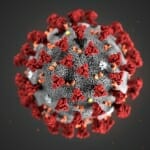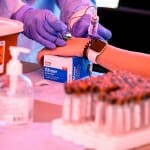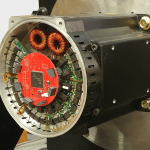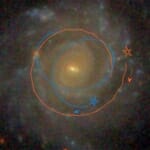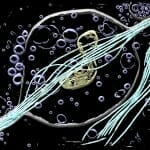Category Science & Technology
Gimlet’s Kendra Pierre-Louis to visit virtually as Science Writer in Residence
As a climate reporter on the new podcast "How to Save a Planet," Pierre-Louis discusses everything from the surprising benefits of trees to why everyone needs a “go bag” — and friendly neighbors — in a disaster.
American Physical Society bestows top honors on two UW scientists
Physics professor Vernon Barger won the J.J. Sakurai Prize for Theoretical Particle Physics, and chemistry professor Martin Zanni was the recipient of the Earle K. Plyler Prize for Molecular Spectroscopy & Dynamics.
UW grad student shares hands-on physics, art lessons with local fifth graders
Students took breaks from all-electronic assignments to work with take-home kits that let them explore the physics of light while creating art.
UW–Madison supports largest solar development in Dane County
The university will purchase half of the energy produced by a 20-megawatt solar array that Madison Gas and Electric plans to build south of Madison.
UW biochemist Scott Coyle awarded 2020 Packard Fellowship
Coyle's research could have far-reaching applications, from expanding the scope of cell-based therapies to fight disease to developing micro-technologies for bioremediation of damaged environmental sites.
Proven treatments and new methods crucial to fighting COVID-19
UW Health clinicians are using current respiratory treatments and are working with the School of Medicine and Public Health on several novel therapies.
UW Arboretum enhances sustainability with solar panel upgrade
The new system will include an array of 66 photovoltaic modules that are projected to produce 32,300 kilowatt-hours in the first year of operation.
COVID questions: aerosol transmission, small business, managing stress
What is aerosol transmission? How has the pandemic affected small businesses? How can I manage stress?
Virtual events explore science of well-being, feature new insights from Dalai Lama
“The World We Make 2020” is a weeklong series by UW–Madison's Center for Healthy Minds. Experts will discuss topics including the neuroscience of the mind-body connection, and workplace well-being for educators.
Explore over 100 virtual events at the 10th annual Wisconsin Science Festival
Activities will include experiments, live Q&A with scientists, demonstrations, performances, podcasts, behind-the-scenes tours and more — along with up-to-the-minute information on what researchers are learning about COVID-19.
Astronomers model, determine how disk galaxies evolve so smoothly
Using advanced computer simulations, scientists from UW, Iowa State and IBM are learning how galaxies get their characteristic structure — super-bright centers fading away to dark edges.
Interview: Keys to a successful COVID-19 vaccine
The race to develop a vaccine for the virus that causes COVID-19 will represent the largest global vaccination effort since the fight against polio nearly 70 years ago. That historical perspective is important, says Morgridge Institute virology investigator Paul Ahlquist.
Coldest Northern Hemisphere temperature, first recorded by UW–Madison, officially confirmed
Nearly 30 years after recording a temperature of minus 93.2 degrees Fahrenheit in Greenland, the measurement has been verified as the coldest recorded temperature in the hemisphere.
Fitter increases the benefits of wearing a mask during the COVID-19 pandemic
A team of UW–Madison engineers has developed a simple and inexpensive do-it-yourself fitter that ensures a tighter mask seal around the wearer’s nose, mouth and face.
New national imaging center has potential to transform medicine
The National Institutes of Health will provide $22.7 million over six years to create a national research and training hub at UW–Madison that will give scientists across the country access to this game-changing technology.

